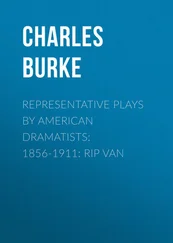Mr Limonides was proving difficult to get to know. He was a model of courtesy, but volunteered no information about himself or his private life. He was a widower, according to Falana, but she didn’t know if he had any family or children; there were no photographs on his desk, and any questions Maria asked that got close to the personal were politely rebuffed. One evening as she was walking to the bus stop near the office after doing some shopping, she caught sight of him in a little taverna, eating a solitary supper, his eyes focused on his plate. Maria thought there was something ineffably sad about the scene and she hurried past before he could look up and see her.
She saw little of Berger, who seemed busy enough in his office. He didn’t ask to see her and she didn’t want to bother him as she had nothing to report. She had no contact with the British Embassy; she’d been told to report in the first instance to Berger.
Of the rest of the staff, Katherine Ball was her favourite and the closest to her in age and style. Katherine worked mainly in London as deputy to the charity’s overall director, but she kept a desk in UCSO Athens and visited several times a year for a few days or weeks, depending on what was going on. She was often closeted with Berger, presumably discussing policy matters, but occasionally she walked round the general office, chatting to the staff. When she put her head round the door of the room where Mr Limonides and Maria worked, it was as if a breath of fresh air had blown in.
For Anastasia and Falana, Katherine’s elegant clothes and easy cosmopolitan chic provided hours of conversation and debate. When from time to time Maria drank her morning cup of coffee with them, she was required to join them in speculating on such important matters as whether Katherine’s shoes could be real Jimmy Choos. Both girls loved to ask Maria questions about London, which she was happy to answer, and about herself, which she was not. But she had no difficulty at all in diverting their interest in her life by questioning them about theirs, which led to lengthy accounts of their favourite clubs, their favourite music, and their favourite boyfriends. Anastasia was the more outgoing of the two and she was insistent that Maria should join them and some friends for a night out, an invitation that Maria had managed so far to find an excuse not to accept. But she had a sinking feeling that in the interests of politeness and good relations, she wouldn’t be able to duck the invitation for ever.
The only thing at all out of the ordinary happened one evening in her third week when Maria got back to her apartment block after her day at UCSO. Madame Coco was standing in the foyer, sucking on a hand-rolled cigarette not much thicker than a toothpick. A small woman of indeterminate age – probably in her seventies – Coco looked after the building with the gossipy vigilance of a Parisian concierge; she also cleaned some of the residents’ flats, including Maria’s.
‘You had visitors,’ she said. ‘A couple.’
‘When was that, Coco?’ asked Maria, wondering if her parents had come round. They’d only been here once, when she’d first moved in, and Coco had never met them.
‘After lunch.’
‘Really?’ That seemed odd; her parents knew she was usually out at that time of day. The faintest suspicion flickered through her mind.
‘What did they look like?’
Cocoa shrugged. ‘I didn’t see them. Mr Pharmakes told me they’d been here.’ He was a retired gentleman who lived on the top floor of the building. ‘He came across them in the hall outside your flat.’
This was odder still. The door to the foyer was kept locked, so non-residents couldn’t simply wander in and out of the building.
‘Did he describe them?’
Cocoa laughed, and stubbed out her cigarette end with a carpet-slippered toe. ‘All he said was that one was pale and the other dark.’
‘Which was which?’ Maria asked instinctively.
Coco shrugged her shoulders. ‘Don’t ask me. And I wouldn’t bother asking Pharmakes. He has cataracts in both eyes.’
Maria thanked Coco and went up to her flat. The visitors probably had been her parents after all. Her mother was an English rose, with pink skin that easily burned in the sun, while her father was a typical Greek with nutmeg-coloured skin and dark hair.
But as she let herself into her flat, she still wasn’t satisfied. Why would her parents come here in the middle of the day? It would have to be about something urgent… her mother’s sister had been very ill. Maybe it was something to do with that. But surely they would have left a message. Maybe she should ring Bruno Mackay and report this. But he’d probably think she was very green, getting jumpy for no good reason. Don’t be silly, she told herself, even though, when she rang her parents, her mother told her they hadn’t been out all day.
By the end of the third week, Maria was beginning to wonder how long she would be able to put up with the boredom of this new assignment. The extra money she was being paid by the British Embassy was nice to have, but she didn’t feel that she was doing anything to earn it. Then on the third Tuesday morning, as she was leaning on Falana’s desk drinking her morning coffee and chatting, Berger came out of his office and asked to see her.
‘How’s it going?’ he asked as she sat down.
‘The job’s fine. But I’m afraid I haven’t uncovered anything.’
‘Don’t apologise,’ he said with a laugh. ‘I’d much prefer to be wrong about all this.’
‘I can’t say if anything’s going on or not. I certainly haven’t noticed anything. And, to tell you the truth, I don’t know if I ever will.’
‘Well, that brings me to what I was going to tell you… we’ve got a good chance now to find out, one way or another. Our next shipment is due out in three weeks. I want you to start to build up the manifest.’
‘Doesn’t Mr Limonides usually do that?’
‘He does, but I’ve got a special project I want him to work on.’ Berger raised one eyebrow. ‘Now, let me give you an idea about this cargo. It’s going to be rather special…’
For the next few days Maria immersed herself in putting together the manifest, and by late Thursday evening she was glad to be finished with it. She had been so busy working that she hadn’t even realised Katherine Ball had gone back to London.
Maria and Berger had agreed that she would be careful to keep the details of the new shipment secret. She wouldn’t talk about it and she would make sure that all paperwork concerning it was carefully locked up. Manifests should always have been handled in that way but it seemed very likely, given the relaxed atmosphere in the office, that these rules had not been followed.
This shipment was as special as Berger had indicated. The drugs alone were worth a fortune and included large amounts of liquid morphine and a pharmacist’s range of codeine-based painkillers. More field-hospital kit was going out as well, with surgical apparatus enough to equip a decent-sized hospital. There were three high-end Range Rovers, and, most temptingly, $100,000 in cash. Maria carefully noted and valued all of this. None of it was being documented in UCSO’s London office, so that if any information leaked out, it would be clear that it had come from Athens.
The most important fact about the cargo which Maria had spent the week working on was that it did not actually exist. The details had been planned purely to tempt any spy inside the organisation. The actual cargo of the next UCSO shipment to pass the Horn of Africa would be much less attractive, consisting as it would of foodstuffs – powdered milk, sacks of grain – and vitamins by the gross. Desperately needed by its eventual recipients, but of only of modest resale value and thus not worth the attention of Somali pirates – unless they had been told the cargo was something else altogether.
Читать дальше












